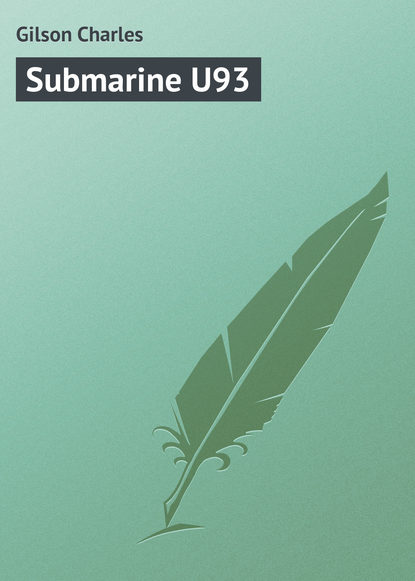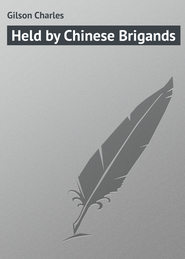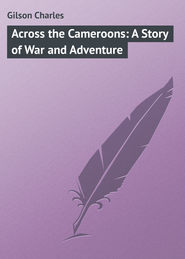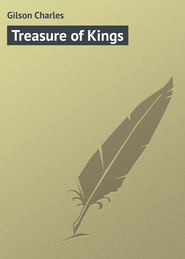По всем вопросам обращайтесь на: info@litportal.ru
(©) 2003-2025.
✖
Submarine U93
Настройки чтения
Размер шрифта
Высота строк
Поля
To the "Goat and Compasses," therefore, Crouch and Jimmy Burke departed, arm in arm. And the captain ashore-as we have said already-was a very different man from the captain afloat, on the quarter-deck or bridge. He was hail-fellow-well-met with almost every other person he encountered in the street. He informed an old lady, who sat knitting at an open window, that she was the possessor of an extraordinary fine canary. He gave a crossing-sweeper fourpence, and a tobacconist-from whom he purchased two pounds of his celebrated Bull's Eye Shag-the benefit of his views on German methods of warfare. At last, at the "Goat and Compasses," he ordered a meal that would have overtaxed the digestive powers of a hyæna, emphasizing the fact that what he called a healthy appetite was the one and only outward (or inward) token of a Britisher.
It was during supper that something happened in the nature of a coincidence. It will be remembered that Jimmy Burke had taken nothing on board the "Harlech" except a few personal belongings, done up in a handkerchief, and a dry loaf of bread. He wore, however, a watch-chain which had once belonged to his father, and from this was suspended his half of the Admiral's lucky sixpence. On a sudden, Crouch's eyes became glued to this small shining souvenir.
It is as well to remember that Captain Crouch had an excellent memory. He was an extremely observant man, who took careful stock of everything that came his way.
"Pardon me," said he, "do you mind if I have a look at that broken sixpence?"
Jimmy handed the sixpence across the table. Crouch examined it for some time without saying a word. Then, he gave it back to its owner, and lying back in his chair, thrust both hands deep into his trousers pockets.
"How did you come by that?" he asked.
Forthwith Jimmy told the whole story of "Swiftsure Burke," who was his grandfather, and how the Admiral's lucky sixpence had been the saving of his life.
"And so," said Crouch, slowly nodding his head in approval, "and so you, who came on board my ship as a stowaway in New York, are a grandson of Admiral Burke! That's strange enough, but there's more still to marvel at. Where's the other half of the Admiral's lucky sixpence?"
Jimmy experienced some difficulty in explaining that his best friend on the other side of the Atlantic was a girl who had once worked in the same office as himself. He even went so far as to say that her name was Peggy Wade, and that it was for her that he had filed in half the little silver coin.
"That's what I mean," said Captain Crouch. "It's what you might call a kind of a concurrence. I met that girl in New York. She's in Mr. Jason's office; and we talked things over, she and I. I might even say, in a manner of speaking, that I took an uncommon fancy to the young lady; and, mind you, I've not been brought much in the way of womenfolk. I don't like 'em as a rule."
At that, Captain Crouch produced his pipe, and thumbed his black tobacco into the bowl.
"Swiftsure Burke," said he, as if to himself, "Swiftsure Burke was a man of whom the British Navy has every right to be proud. I'm more ashamed than I can say, when I think that I treated a grandson of his in the way I treated you. But, that's all past and done with. You must forget it, lad; for, though I was a blind fool, my heart was in the right place, and I meant it all for the best."
At that, Crouch rose suddenly from his chair, and stumped out of the room. With his cork foot he walked with a pronounced limp, though he was sufficiently active to go upstairs two steps at a time. He led the way to a small sitting-room on the first floor; and there he and the boy remained, poring over the mysterious message that had been rescued from the sea-chest of Rudolf Stork, until the small hour of the morning.
Crouch, now that he knew for a fact that Rudolf Stork was a spy, was willing enough to spend hours endeavouring to decipher the message. Holding the paper first in one hand and then in the other, he read it over and over again.
Steamboat entrance verified. Evening navigate. Follow idea. Vernacular encumbrance. Enter into Guinea half-speed.
At last, he laid down his pipe upon the table, and clapping his hands together, cried out, "I've got it!"
"Do you mean," said Jimmy, "that you can explain it?"
"Seems fair," said Crouch-a favourite expression of his, used as a rule to express an affirmative. "Seems fair. I was a bit puzzled at first, but it's plain sailing all right, once you've got the thread of it."
And thereupon the little captain went on to explain what he took to be the meaning of the message which, according to him, referred to a chart of some little-known and lonely island, probably in the Western Pacific.
He said that he thought that "Guinea" must refer to New Guinea, which is a German colony, and not to the Guinea that lies on the West Coast of Africa. The island alluded to was probably one of the smaller atolls lying to the south-east of the Indies. In this island, it appeared, there was a harbour, the entrance to which would admit sea-going steamers. Such a harbour, Crouch explained, would be invaluable to the German commerce-raiders operating in those waters.
The beginning of the message was therefore quite easy to understand. Soundings had evidently been taken, and the entrance found navigable. It was necessary, however, to negotiate the harbour in the evening, because there would then be less chance of being discovered.
The meaning of the next words, "Follow idea," Crouch was not wholly able to explain. He said it was possible that they referred to some suggestion made by the writer or, perhaps, by Rudolf Stork himself.
The rest of the message, according to Crouch, was simplicity itself. "Vernacular encumbrance"; in other words, the language would be a great difficulty. As the captain himself was able to testify, all branches of the Kanaka language were extremely difficult to learn; and it is not always easy to make South Sea Islanders understand by means of signs. If the Germans required this island as a secret base, or coaling station, they would first have to make friends with the inhabitants, since obviously they could not afford to keep a permanent garrison in the place. The concluding sentence was altogether apparent. The chief port of German New Guinea, or Kaiser Wilhelm's land, is Stephansort, which lies at the end of Astrolabe Bay, and a ship entering the harbour would naturally steam at half-speed to avoid the numerous shoals.
The captain went on to say that, since there was no doubt that Stork was a German spy, he had probably received definite instructions in regard to the wireless station in New Guinea against which, it was believed, an Australian expedition had already been despatched. It was even probable that the message was not without reference to the German cruiser, the "Emden," which in point of fact had already been overhauled and destroyed.
"None the less," said Crouch in conclusion, "there's mischief enough brewing in all conscience. So far as I can see, there's nothing to prevent the enemy's light cruisers breaking away from Kiel and taking to the high seas, where, by reason of their great speed, they are capable of doing a great deal more damage than the submarines. That this message refers to some secret coaling-station in the Western Pacific I have not a shadow of doubt."
There was something so simple, and yet so probable, in Captain Crouch's explanation, that Jimmy Burke was from the first both interested and filled with admiration for the little captain's ingenuity. The more he read the message the more was he certain that Crouch was on the right track. As for the captain himself, now fairly launched upon the subject of his travels, there is no knowing when he would have left off talking of coral islands, cannibals and great banana festivals, had not, on a sudden, Jimmy's attention been attracted by a very singular thing.
Regarding the message from over Crouch's shoulder, he was struck by an extraordinary coincidence, which he had not noticed before, namely, that the first letters of the first five words were S-E-V-E-N.
He pointed this out at once to Crouch; whereupon it appeared that in similar fashion the first letters of the next four words spelt F-I-V-E.
Captain Crouch was so amazed that he even paused in the act of lighting his pipe, with the result that he burnt his fingers with the match.
"That's strange," said he. "It may be we've got hold of the wrong end of the stick. What about the rest of it? Have the first letters of the remaining words any sort of meaning?"
Letter by letter Jimmy spelt them out.
"E-I-G-H-S."
"There's a flaw there," said Crouch. "It should end up with a T. That last word should be eight."
By then Jimmy was wildly excited. The whole affair had suddenly become not only interesting, but vastly thrilling.
"What about the last letters of each word?" he exclaimed.
"T-E-D-G," spelt Crouch. "That means nothing, so far as my knowledge goes."
"What's the next letter?" asked the boy.
"E," said Crouch. "T-E-D-G-E, that spells nothing either." Then suddenly his expression changed. "Wait a moment!" he exclaimed. "What about this? Supposing the last word, which is half-speed, counts as one word, and not as two. Take the first letters of each word, and then go back to the beginning and take the last letters. That makes the 't' at the end of steamboat, the last letter of the word 'eight'-"
"And then," cried Jimmy, taking the words out of the captain's mouth, "then the last letters are E-D-G-E-W-A-R-E-R-O-A-D."
"Edgeware Road!" cried Crouch, "by all that's wonderful and mad!"
They looked at one another with the blank expression of men who are half-dazed. Then Crouch produced a pencil from his pocket, and wrote down this new interpretation of Rudolf Stork's mysterious instructions-
It was only natural that Jimmy should look for advice to Captain Crouch, who was considerably older and far more experienced than himself.
"And whatever does that mean?" he demanded.
Crouch made a wry face, and shrugged his shoulders.
"Ask me another!" said he. "I know well enough where the Edgware Road is, and seeing that I was born and bred in London I suppose I ought to. But, if you want to know what that has got to do with my secret coaling-station in the South Sea Islands, I'm afraid you've come to the wrong shop. Seven hundred and fifty-eight, Edgware Road! Jimmy, my lad, we're no nearer the solution of this mystery than we were before-in fact, it seems to me, we've lost our bearings in a fog."
In addition to which, there is no denying that Captain Crouch felt not a little personally aggrieved that his own lucid explanation, his strange, fantastic solution concerning some mysterious Pacific island, should be supplanted by so commonplace and well-known a locality as the Edgware Road in London.
"My boy," said he, knocking out his pipe on the toe of his cork foot, "we'll go to this address, just you and I, and find out who's at home."
"When?" asked Jimmy, all eagerness.
"When!" repeated Crouch. "Why, now."
CHAPTER XVII-Number 758









